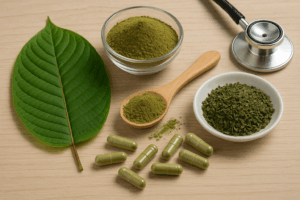In this blog, we’re not going to pull punches because we at Direct2Recovery believe in sharing the hard truth. So how long does it take to get over an addiction? A lifetime.
Unfortunately, addiction comes with a huge misconception. You don’t just “get over it.” You learn to live with your history of it by setting lifelong boundaries and finding coping skills that help prevent relapses.
It is possible to recover from addiction and live your life without drugs. We’re not saying any of this to scare you, or to say that you’ll never get better — you can. But it’s something that you will have to put intensive and long term effort toward.
Instead of thinking “how long does it take to get over an addiction,” instead ask “how can you manage your addiction.”
How Can You Manage Addiction?
The best way to manage something is to begin by understanding it. Addiction is a chronic, relapsing brain disease.
The CDC classifies chronic diseases as any condition that lasts one year or longer, requires ongoing medical attention and/or limits your daily activities.
Addiction follows all of those patterns — you have to continuously manage it and take steps to remain healthy every day. It’s not like acute diseases like the common cold or strep throat. There’s no “cure all” remedy for it and you don’t simply wake up feeling better the next day.
We want you to know that all of this is okay. It is manageable. Like any chronic illness, you just need a treatment plan that works for you. Something completely customized to your needs and your lifestyle.
Why Addiction is a Chronic Brain Disease
The human brain is wired to reward us when we do something pleasurable, like exercising, eating, spending time with loved ones, etc. It purposefully makes us feel good so those behaviors become habits. It’s basically the brain’s way of saying “this is good for you, keep it up!”
Drugs, such as opioids, trigger that same reward system. They trick your brain into making you feel good, which in turns makes you want to take more drugs. Unfortunately, the effect is more intense than with normal triggers.
Essentially, drugs prompt an explosive release of the “happy hormone” dopamine. Your brain then overreacts to the high level of hormones and shuts down the production altogether to normalize itself.
With more and more use, the brain becomes tolerant to higher levels of dopamine. Eventually, the regular amount of dopamine produced by eating or exercise won’t be enough for you to feel.
Think of it like drinking coffee. You’re trying it for the first time and decide to have a cup each day. The first few days are amazing and you get the energy boost you need. As time goes on, one cup starts waking you up a little less. That’s when you try 1.5 cups to feel awake. Then 2. Then 3.
This is how the cycle of addiction begins.
Addiction doesn’t force someone to use drugs to make them feel good. The user takes drugs to feel normal.
When there isn’t enough present in the system, withdrawal symptoms can appear. Withdrawal is a painful, whole-body experience that can make someone feel extremely depressed, irate, and physically ill. It’s not an experience people want to go through, which is why addiction is so hard to manage.
Thankfully, there are treatment options that can help manage your addiction and your withdrawal symptoms.
Treatment Options
The right treatment is designed to help your brain break the reward cycle built by drugs while minimizing withdrawal symptoms.
The most current evidence-based studies recommend committing to medication assisted treatment (MAT) for at least 6 months. That correlates with true organic and measurable improvements in brain function found through on MRI imaging.
As a result, that is our current recommendation for any new patients entering treatment. At Direct2Recovery, we pair Suboxone and MAT together and create a customized treatment plan for all of our patients. We are an out-patient clinic that utilizes telemedicine and at-home drug screenings as well because your comfort is paramount.
You may also respond better to an in-patient facility that uses the same MAT model. We have a blog that may help point you in the right direction.
So, How Long Does it Take to ‘Get Over’ Addiction?
It can take 6 months or more to break the addiction’s hold over your brain’s reward cycle, but that doesn’t mean you’re “over it.”
You may not like the answer, but addiction requires constant vigilance. While the cravings do lessen over time, it will always be there in your memories. It means you’re going to need to be invested in avoiding triggers, handling tough situations by using your coping mechanisms, and be committed to growing as a person who doesn’t rely on drugs.
This doesn’t mean you’ve ruined your life. It doesn’t mean you’re going to be fighting every single day of your life. All it means is that you have a past that you need to learn from, just like every person on this planet. Addiction is controllable and it does not need to define who you are for the rest of your life.
Remember that it’s just like diabetes — people live with it everyday. Some days are harder than others; sometimes your blood sugar doesn’t want to regulate, while other days are easy. It’s always in the back of your mind, because it has to be, but that doesn’t mean it controls you.
You can take control of it and with commitment and hard work, you can overcome it. We believe in you.





